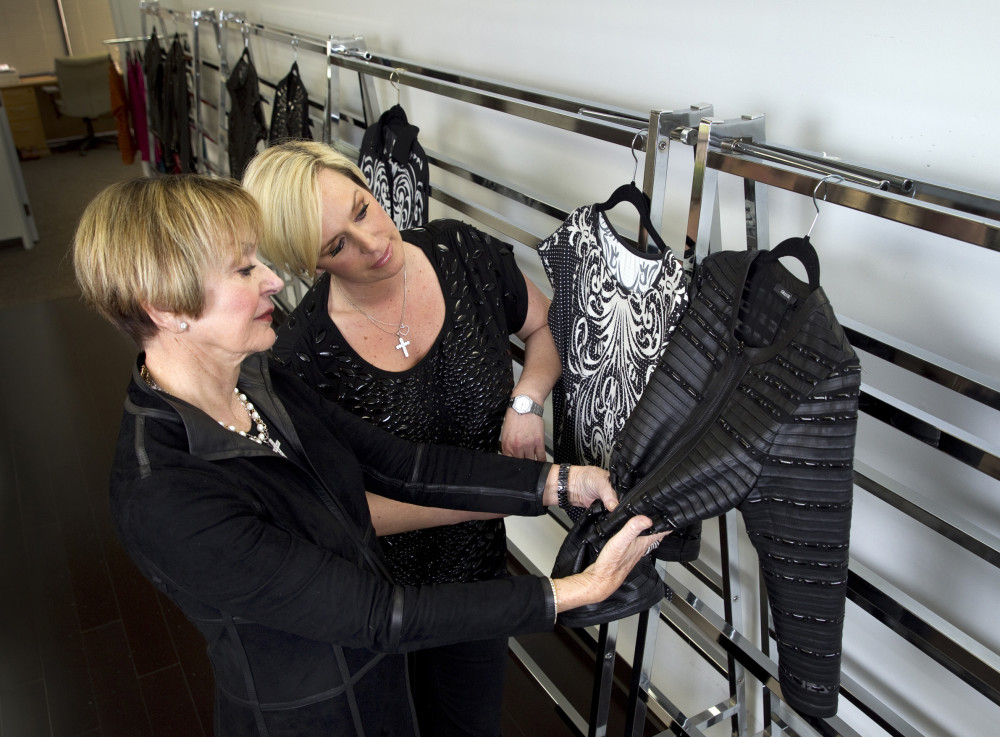By Dan Linehan
The Free Press, Mankato, Minn.
WWR ARticle Summary (tl;dr) From 2007 to 2016, the number of women-owned firms grew by 45 percent nationwide, compared to a 9 percent rise for all businesses. So who are these women in business who are drastically changing the stats? This article takes a look at a few women from Minnesota who are making their mark.
MANKATO
If building a network is a key skill for entrepreneurs, Vicki Hagen, like many women, may have been starting from a disadvantage.
Whereas many men bond over hunting or golfing while building social networks with potential clients and contacts in the process, Hagen was just as likely to hang out with her kids.
“I don’t have that natural group,” said Hagen, who owns Kato Roofing. And these networks aren’t a thing of the past; plenty of business is still transacted on the greens, she said.
“Has it been harder? Yes. Have I had to prove myself differently at times? Absolutely,” she said. But that doesn’t mean she’s about to complain. “To me it was almost just like, that’s just the way it is.”
“I feel very strongly that you have to get business based on your own laurels,” she said.
This disadvantage in business networks, including to gain access to startup funding, has been one of the reasons women had lagged in starting business.
But that’s changing, in Minnesota and nationwide.
From 2007 to 2016, the number of women-owned firms grew by 45 percent nationwide, compared to a 9 percent rise for all businesses. Employment of women-owned businesses grew by 18 percent, compared with a 1 percent loss in total employment. The census data come from a new report on the state of women-owned business funded by American Express.
In Minnesota, women-owned firms grew at a slower pace of 27 percent. But employment at women-owned firms grew faster here, at 44 percent.
This suggests Minnesota is doing better with respect to growth of existing firms as opposed to rising numbers of new ones, said Julie Weeks, the consultant who wrote the report.
She said part of the credit goes to rising numbers of women earning college degrees, and therefore developing networks they can call upon as entrepreneurs.
April Femrite, an entrepreneurship and innovation fellow at Minnesota State University, agreed that skills and networks are key.
“What we’re seeing at MSU, where it might’ve been, 10 to 20 years ago, traditionally males, we’re seeing more of a 50:50 ratio of students,” she said.
One of those students is Hannah Thompson, a junior majoring in dietetics who has started a business as a personal chef who works in customers’ homes. She shops for groceries, plans a menu and cooks some meals for the customer to reheat later.
Thompson said she wanted to avoid restaurant kitchens while setting her own hours. Her business, HomeFresh Personal Chef Services, already has attracted a handful of clients.
She said she learned business skills while managing a Subway restaurant and honed her cooking skills with a degree at South Central College.
Getting involved with Femrite, too, has been an important step.
“Being a part of MSU has opened up a set of connections” that she otherwise wouldn’t have.
Diverse industries
A generation ago, there was a stereotypical women-owned business, but women have since made inroads into every industry, said Weeks, the consultant.
Hagen, the roofing company owner, said people wondered how a woman would make it in the construction field when she took over the business in about 2009.
“I think that was very tough,” she said, adding that she had plenty of support from employees and others.
And she has thick skin.
“Have I walked into a group of guys that have made inappropriate comments?” she said. “Absolutely, and I just choose to look at that as people being people and maybe a slice of ignorance. They don’t know what they don’t know.”
Another longtime Mankato business owner, Yvonne Cariveau, tells a similar story; she experienced sexism but it was relatively rare.
Cariveau grew up with entrepreneurial parents, so starting a business never seemed strange. And she got plenty of experience along the way. As a child, she would dress up as a gorilla and hand out fliers to customers at trade shows to promote her parents’ rental store.
Cariveau would go on to enter another male-dominated industry. In 1993, she and her then-husband started Internet Connections, the first Internet access provider in Greater Minnesota. While sexism wasn’t common, one incident stands out.
She and a male engineer were meeting with a potential customer who started to act strangely. Whenever he spoke, even about non-technical issues like pricing, he addressed her employee, who quickly grew uncomfortable.
The engineer suggested the customer ask his boss, and motioned toward her.
“His body language was, ‘Please, dude, stop looking at me,'” Cariveau said.
After this went on for awhile, she had had enough.
“I just got up and I said I think we’re done,” she said. “I walked out on what was probably going to be a pretty large contract. I was kicking myself in the car.”
Her business would eventually get that contract, incidentally.
“It’s only happened a couple of times,” she said of sexism, “and that story is like my only really good one,” she added, laughing. “The rest of the 23 years I’ve been very well accepted. I feel like I can to go a chamber of commerce meeting and walk up to just about anybody.”














































































































































































































































































































































































